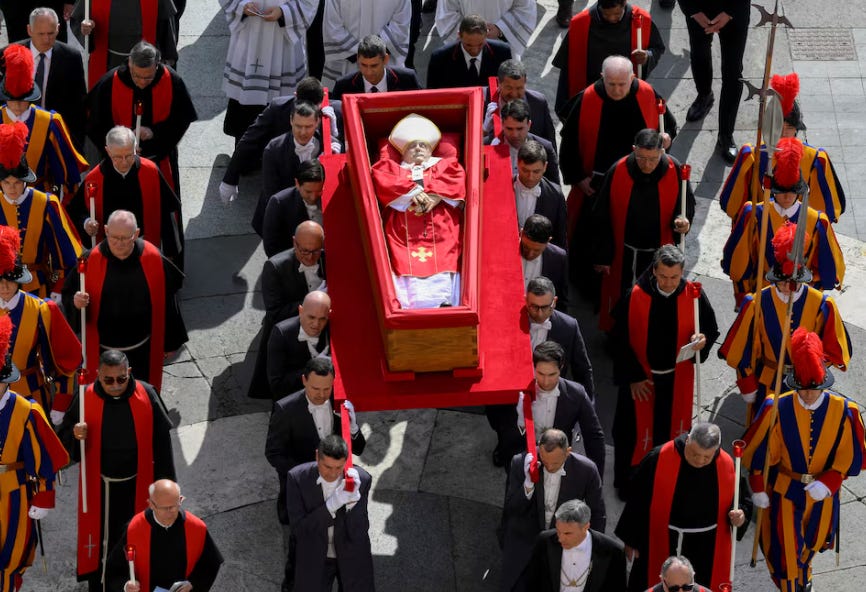I Hope You All Die
Why natural death is a good thing, actually, and why you should plan for it now, before it's too late.
I hope you all die, and I mean that with all of my heart. Allow me to explain.
Last month we spent our spring break visiting family, friends, and graveyards.
Against the backdrop of Pope Francis’s death and funeral, my children and I paid our respects at the grave of a dear friend’s infant daughter, who tragica…



